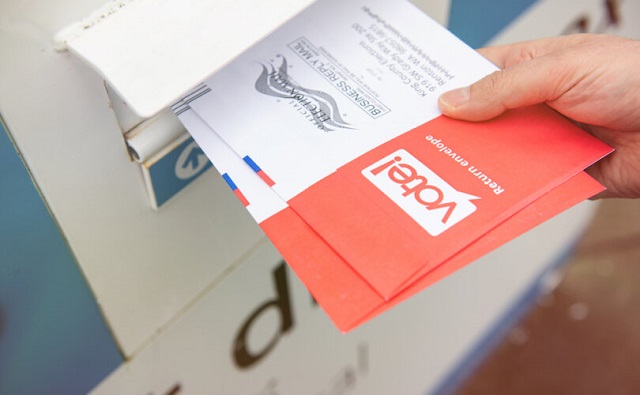Originally published by The Daily Caller.
“It’s a real shift worth celebrating, given that most investors did not have confidence in his ability to reduce the deficit just a few weeks ago. If anything, perhaps he’s going overboard in some ways.”
Javier Milei, Argentina’s newly elected libertarian and self-described “anarcho-capitalist” president, is embracing sweeping reforms to save the country’s struggling economy, even in the face of overwhelming obstacles.
Despite challenges arising from lawmaker opposition and a soaring inflation rate that has plagued the country for years, Milei’s “shock” adjustment actions have improved market and investor confidence both among the Argentinian population and abroad. Milei inherited a 140% inflation rate, an impoverished population and hundreds of billions in debt when he took office in December.
Milei acknowledged on the day of his inauguration that Argentina’s economy would temporarily get worse while he embraced “shock” adjustments to start making fixes.
“They have ruined our lives … There is no money!” Milei said during his inauguration speech. “Therefore, the conclusion is that there is no alternative to adjustment and no alternative to shock … this is the last straw to begin the reconstruction of Argentina.”
One of Milei’s first actions as president was to slash Argentina’s bureaucratic ministry from 18 to nine in a bid to reduce government spending, fulfilling a promise he made on the campaign trail, according to Reuters. Milei and his supporters saw several of the agencies as ineffectual and bloated with cash, including the Ministry of Transportation and Public Works, Tourism and Sports and the Ministry of Environment and Sustainable Development, which were absorbed by other existing ministries, according to the CATO Institute.
Milei also allowed the value of the peso currency to plummet by 50% in December to reduce export costs while also increasing the import costs, according to The Associated Press. The goal is to close the trade gap, making Argentina a bigger global trade competitor and stem the flow of money leaving the country, which would increase the stockpile of its exhausted foreign currency reserves.
The eventual plan for Milei is to replace the peso currency entirely with the U.S. dollar, another promise he made on the campaign trail, according to NPR. The U.S. dollar is prized in Argentina because it is generally stable and holds its value longer than the peso.
Temporary tax hikes were imposed by Milei’s administration to reduce the national debt and start balancing the budget according to the AP. Argentina’s budget deficit currently sits at 3%, and Milei has promised to balance it this year, according to Reuters.
Milei sent an omnibus reform bill to Congress in December that would privatize state-owned companies and raise export taxes, and remove limits on bonds issued overseas and on debt restructure rules, according to Reuters. He also issued a separate presidential decree in December to deregulate Argentina’s economy.
These actions are already having positive impacts. Argentina’s monthly inflation slowed down to 15.3% in February, much lower than the spike in December, according to Reuter’s forecast. The country also saw a monthly budget surplus in January for the first time in over a decade.
“The Milei administration has inherited a steep stabilization task, but has already taken some important steps toward restoring fiscal sustainability, adjusting the exchange rate, and combating inflation,” U.S. Secretary of Treasury Janet Yellen said during a press conference in late February.
Argentinian citizens have deposited over $2.3 billion in dollar-denomination banks since Milei took office, restoring the entirety of the banks’ losses from the last year and signaling that the population feels stability, as withdrawals typically increase during unsteady times, according to Bloomberg. Argentina’s bonds are at four-year highs and the country’s risk index has fallen to a two-year low, according to Reuters.
“The market is becoming very optimistic about Javier Milei’s conviction,” Javier Casabal, a Buenos Aires-based fixed-income strategist at Adcap Grupo Financiero, told Reuters. “It’s a real shift worth celebrating, given that most investors did not have confidence in his ability to reduce the deficit just a few weeks ago. If anything, perhaps he’s going overboard in some ways.”
Milei still faces several roadblocks. Inflation is still at record highs and poverty continues to consume much of the Argentinian population. Major provisions in Milei’s reform bill were blocked in early February by the country’s Congress, which he has referred to as a “nest of rats,” according to Reuters
Milei vowed to Congress during a speech on March 1 that he would “speed up” his reform plans, encouraging them to join his efforts but warning that he did not need them to accomplish his goals, according to Reuters.
“We won’t back down, we’re going to keep pushing forward,” Milei said. “Whether that’s by law, presidential decree or by modifying regulations.”
Milei’s government is now considering breaking up the reform bill and passing provisions separately through Congress, according to Reuters. He is requesting lawmakers to agree to a 10-point social pact, which would include negotiations in discussions on economic reform, by May 25.
Originally published by The Daily Caller.
For more public policy from The Heartland Institute.
















